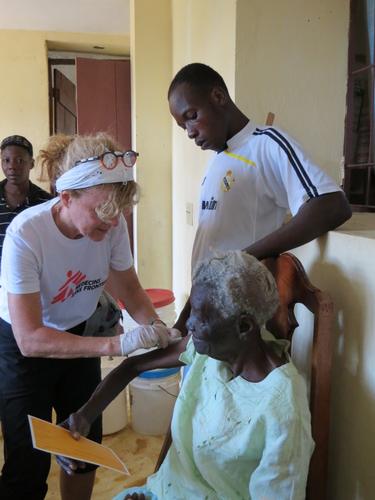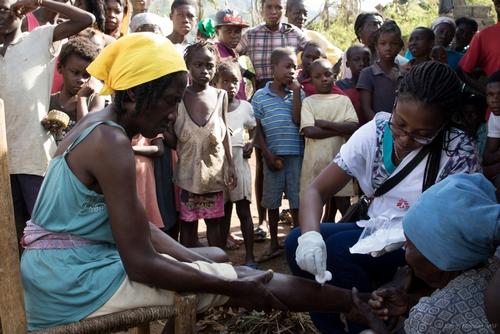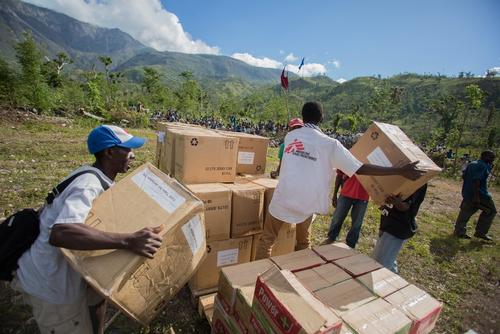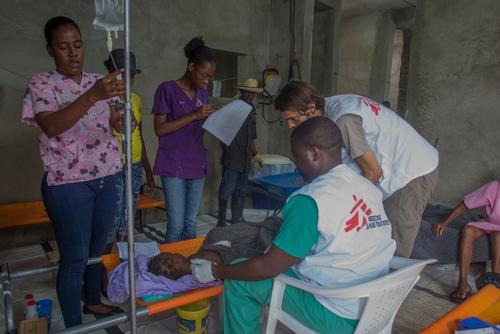This morning, our mobile clinic headed to Lopino, a village in the mountains that can only be reached by helicopter. Like most villages in Grand Anse, hurricane Matthew left a trail of destruction here. The streets are bordered by fallen trees and debris, and the valley is covered in trees torn in half. Only a red and white front remains of the church. Luckily, the health centre, which served as refuge for the residents, survived the hurricane.
Most of the gear we bring along is equipment to treat open infected wounds, to put casts on fractures or to vaccinate against tetanus.
Our time in the village is always limited, because the frequent storms during the rainy season restrict helicopter flights. Even when we reach a village by car, the drive on damaged roads can last more than two hours one way, reducing as well the time available with patients. So, we have to work as quickly as possible. Today, we treated 58 patients, but there were days in which we treated up to 90 patients until the afternoon. Our priority is to treat open wounds, fractures and pediatric emergencies.

It’s been two weeks that these people have endured painful injuries or broken bones without treatment. Fractures, whether simple, complicated or open, are sometimes stabilized by traditional healers. You can all too well imagine the suffering of people left without care for two weeks. And there are still so many people we haven’t reached yet.
As we arrived in another village a couple of days ago, the priest was the only person to welcome us at the health centre because all the nurses had left the village. There were many people waiting for treatment this day. Each one of us was so concentrated on seeing all the patients that, finally, I resolved to ask the priest to help put a cast on a broken leg!
The lack of food adds to the patients' trauma. Several days ago, I treated an elderly woman with severe burns on her hand. As she refused an injection against the pain, I tried to distract her by talking about her family. She had lost her two children and was now the only caretaker for her two grandchildren. Her only worry during the treatment was the reality that when she was leaving the clinic, she would go home with no food to feed her grandchildren.





